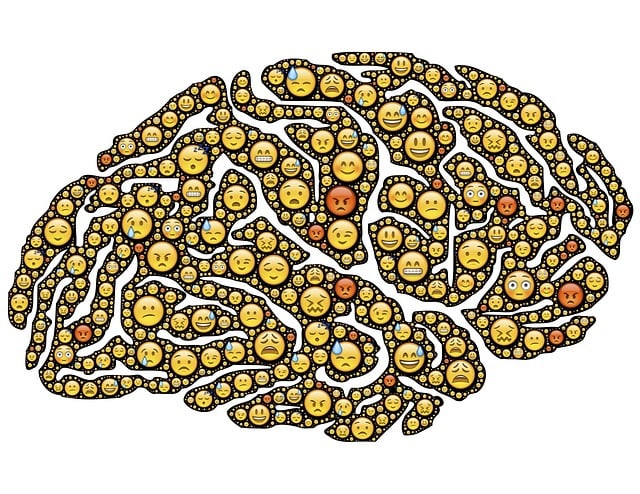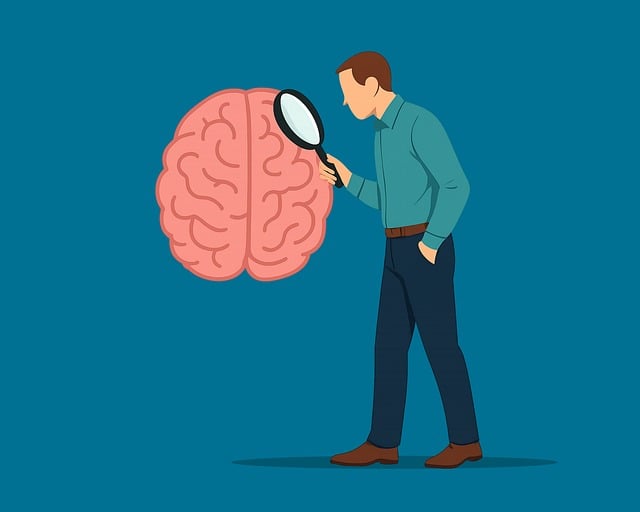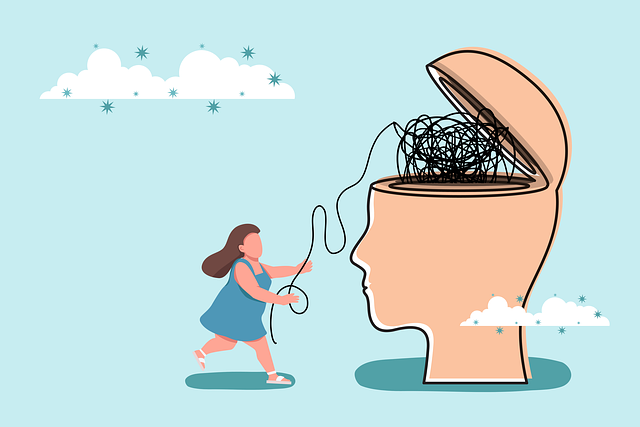In stressful Colorado Springs, comprehensive mental health education beyond traditional therapy is crucial for healthcare providers facing burnout. Integrating mindfulness meditation and evidence-based practices into professional development reduces stress, enhances resilience, and benefits patient care. Programs like those offered by Colorado Springs Mental Health Services focus on interactive workshops, group discussions, and multimedia presentations to build emotional regulation skills and prevent anxiety/depression. Cultural sensitivity ensures tailored support for diverse backgrounds. Overcoming geographical and economic barriers with community-based initiatives increases access to mental health education. Evaluating program success through dynamic feedback and data-driven methods ensures their effectiveness in meeting Colorado Springs' unique needs.
“Mental health is a cornerstone of overall well-being, and its significance is increasingly recognized globally. This article explores the critical components of designing effective mental health education programs in diverse communities, using Colorado Springs as a case study. We delve into the need for comprehensive coverage, essential program design strategies, evidence-based therapy practices, and methods to engage underrepresented groups. Additionally, we examine evaluation techniques for mental health programs, emphasizing the importance of Colorado Springs mental health evaluations and therapy outcomes.”
- Understanding the Need for Comprehensive Mental Health Education
- Designing an Effective Program: Key Components and Strategies
- Incorporating Evidence-Based Practices in Therapy Sessions
- Overcoming Barriers: Engaging Diverse Communities in Colorado Springs
- Measuring Success: Evaluation Methods for Mental Health Programs
Understanding the Need for Comprehensive Mental Health Education

In today’s fast-paced world, where stress and mental health challenges are prevalent across various demographics, including the workforce in Colorado Springs, there is a growing need for comprehensive mental health education. Beyond traditional therapy and mental health evaluations, educational programs must delve into empowering individuals with tools to manage their well-being. This includes fostering positive thinking and teaching mindfulness meditation techniques that have been scientifically proven to reduce stress and enhance resilience.
The demand for such initiatives is particularly acute in the healthcare sector where providers often face high-stress environments, leading to burnout. Implementing effective burnout prevention strategies is essential not only for individual provider well-being but also for ensuring quality patient care. By integrating mental health education into professional development programs, Colorado Springs can create a more supportive and sustainable work environment, ultimately benefiting both healthcare providers and the community at large.
Designing an Effective Program: Key Components and Strategies

When designing an effective mental health education program, such as those offered by Colorado Springs Mental Health services, several key components and strategies should be considered. Firstly, integrate diverse learning methods to cater to different student preferences and learning styles. This can include interactive workshops, group discussions, multimedia presentations, and even guest speakers from the local therapy community in Colorado Springs. Such a multifaceted approach enhances engagement and knowledge retention.
Additionally, focus on building foundational skills like emotional regulation, which forms the bedrock of mental well-being. Teach participants strategies for stress management, coping with anxiety, and depression prevention through evidence-based practices. Promote open dialogues and safe spaces where individuals can share their experiences, fostering a sense of community and mutual support. Regular feedback mechanisms should also be implemented to continually improve the program’s effectiveness, ensuring it aligns with the evolving needs of those seeking mental health awareness and therapy in Colorado Springs.
Incorporating Evidence-Based Practices in Therapy Sessions

Incorporating evidence-based practices is a cornerstone of effective therapy sessions in Colorado Springs mental health evaluations. These practices, backed by rigorous research, offer proven strategies to address various mental health concerns. For instance, cognitive-behavioral therapy (CBT) has shown remarkable success in treating anxiety and depression by helping individuals identify and challenge negative thought patterns. Similarly, mindfulness-based interventions enhance clients’ awareness of the present moment, fostering inner strength development and improved emotional regulation. By integrating these evidence-based techniques, therapists can provide tailored support that strengthens clients’ coping mechanisms and boosts confidence.
Moreover, cultural sensitivity in mental healthcare practice is vital to ensuring inclusivity and effectiveness. Therapists should be trained to consider the unique cultural backgrounds of their clients, tailoring interventions to resonate with individual beliefs and values. This approach not only respects diverse communities but also empowers individuals to engage more deeply in their therapy journey. Incorporating inner strength development and confidence-boosting techniques within evidence-based practices creates a holistic framework that addresses both the mind and spirit, ultimately enhancing the overall well-being of Colorado Springs mental health evaluation participants.
Overcoming Barriers: Engaging Diverse Communities in Colorado Springs

In Colorado Springs, engaging diverse communities in mental health education requires overcoming unique barriers. Many residents face limited access to resources due to geographical disparities and economic challenges, hindering their ability to seek necessary support for their mental well-being. According to recent studies, Colorado Springs has a higher rate of unmet mental health needs compared to the state average, emphasizing the critical need for inclusive initiatives.
To address these issues, local organizations are leveraging innovative strategies such as community-based Stress Management Workshops and mindfulness meditation programs. By incorporating emotional intelligence training into these initiatives, they aim to empower individuals with coping mechanisms tailored to their diverse backgrounds and experiences. These efforts not only enhance mental health awareness but also foster a sense of belonging and support within the community, ensuring that everyone in Colorado Springs has access to the therapy and evaluations needed to thrive.
Measuring Success: Evaluation Methods for Mental Health Programs

Evaluating the success of a mental health education program is paramount to ensure its effectiveness and positive impact on participants’ well-being. In Colorado Springs, mental health evaluations play a crucial role in tailoring therapy and support to individual needs. These assessments help identify specific areas of improvement and measure progress over time. Various evaluation methods can be employed, including self-reported questionnaires, clinical interviews, and objective measures such as psychological tests. By combining quantitative and qualitative data, program designers can gain valuable insights into the success of interventions.
Mental wellness coaching programs often utilize development tools to track participant growth. Similarly, burnout prevention strategies for healthcare providers can benefit from regular mental health awareness assessments to maintain a healthy work-life balance. Ultimately, the evaluation process allows for continuous improvement, ensuring that mental health education programs in Colorado Springs remain dynamic and responsive to the evolving needs of the community.
Mental health education programs play a pivotal role in fostering well-being within communities, especially in diverse urban centers like Colorado Springs. By incorporating evidence-based practices, engaging various stakeholders, and utilizing robust evaluation methods, these initiatives can significantly impact individuals’ lives. The strategies outlined in this article, including comprehensive curriculum design, community outreach, and effective therapy sessions, provide a roadmap for creating impactful mental health education programs that cater to the unique needs of Colorado Springs residents, ensuring better access to care and improved overall mental health evaluations and therapies.














